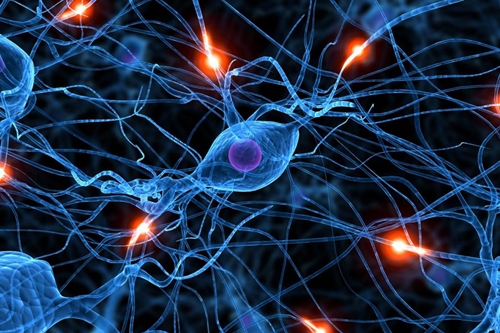8 August 2016. Stem cells from people with bipolar disorder are being collected by an academic-industry partnership for scientists worldwide who study the disorder. The collaboration of researchers at University of Edinburgh in Scotland and Roslin Cells, a company also in Edinburgh, is funded by a challenge award from the National Centre for the Replacement, Refinement and Reduction of Animals in Research, or NC3Rs, an advocacy group.
Bipolar disorder is characterized by sharp mood swings from high-energy euphoria to deep feelings of sadness, sometimes so severe they require hospitalization, if moods generate dangerous or suicidal behavior. Periods of bipolar disorder, which used to be called manic-depression, can last from days or weeks at a time, over periods of years. Treatments can include drugs and counseling, combined with substance abuse treatments, if needed.
The stem cell banking project is a result of a challenge program supported by NC3Rs to find a substitute for screening new drug candidates for bipolar disorder on animals, usually genetically altered mice and rats. The challenge sought solutions that would not only substitute for animal tests, but even improve their predictive validity for bipolar disorder, thus making animal models obsolete.
In response to the challenge, biological psychiatrist Andrew McIntosh at University of Edinburgh proposed collecting adult stem cells derived from skin samples of individuals in a Scottish family with bipolar disorder, both family members having a characteristic genetic mutation associated with the disease and those without the mutation.
The differentiation or transformation of the stem cells into precursor nerve and glial (support) cells in the brain would provide a platform for better understanding development of bipolar disorder in this family. Genomic analysis of stem cells from the family would also be compared to results from larger samples with sporadic incidents of bipolar disorder to identify sources of differences in the population at large. For this proposal, McIntosh received an award of £998,586 ($US 1.3 million) in December 2015.
This initiative led to the collaboration between Roslin Cells and the university. Roslin Cells has facilities meeting good manufacturing practice or GMP standards for pharmaceuticals and medical samples. Stem cells collected from McIntosh’s research will be banked, differentiated, and scaled up in quantity by Roslin, then made available to researchers worldwide studying bipolar disorder. Distribution of the cells will be done through the European Bank for induced pluripotent Stem Cells, or EBiSC, located in Cambridge, England.
“Being able to grow brain cells from families with bipolar disorder represents a major addition to our research toolbox,” says McIntosh in a university statement. “It will enable us to discover what goes awry in the brains of people with bipolar disorder and a number of other psychiatric disorders. It will also provide a platform against which new and more effective therapies can be tried, reducing the need for animal experiments.”
Read more:
- Trial Underway Testing Stem Cells to Treat Alzheimer’s
- Stem Cells, Gene Therapy Produce Replacement Joint Cartilage
- Stem Cell Treatments Show Benefit for ALS Patients
- High-Volume, More Efficient Stem Cell Production Developed
- Engineered Facial Bone Grown from Stem Cells
* * *


 RSS - Posts
RSS - Posts
You must be logged in to post a comment.